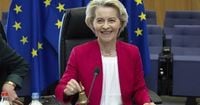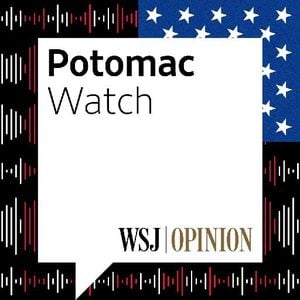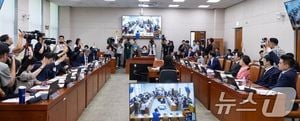On September 10, 2025, European Commission President Ursula von der Leyen took center stage in Strasbourg, delivering a State of the European Union address that signaled a dramatic turn in the bloc’s foreign policy and internal ambitions. Her speech, delivered before the European Parliament, was anything but routine. Instead, it laid out sweeping changes to the European Union’s approach on Israel, Ukraine, and the Union’s own future, setting the tone for what promises to be a turbulent political season.
Von der Leyen began by confronting the crisis in Gaza, which she described as "catastrophic," according to reporting from AFP. In a move that has already sparked fierce debate across capitals, she announced that the European Commission would freeze all EU payments to Israel. However, she was careful to clarify that support would continue for Israeli civil society and for Yad Vashem, the Holocaust remembrance center, signaling a nuanced approach rather than a blanket cutoff.
“Europe’s goal has always been the same. Real security for Israel and a safe, present future for all Palestinians,” von der Leyen declared, as cited by AFP. She stressed the importance of a two-state solution as the only path to lasting peace in the region, a position that has long divided EU member states but remains a cornerstone of European policy.
The Commission’s new measures go further than ever before. Von der Leyen revealed plans to act independently—bypassing the usual requirement for majority approval among member states. This includes possible sanctions against extremist Israeli ministers and violent West Bank settlers, a partial suspension of the EU–Israel trade agreement, and a broader suspension of the EU’s association agreement with Israel, which grants the country preferential access to European markets. “Europe needs to do more,” she insisted, urging member states to take "our own responsibility" on these urgent matters.
Yet, the path ahead is anything but clear. As noted by BBC, imposing sanctions or suspending trade agreements would require unanimous approval from all 27 EU member states. Resistance is expected from countries like the Czech Republic, Hungary, and Germany, which have previously blocked similar moves and remain divided on how far the EU should go. Others, such as Spain and Ireland, have pushed for even tougher measures, including an arms embargo and economic curbs on Israel. The bloc’s divisions were laid bare as Israeli Foreign Minister Gideon Saar swiftly condemned von der Leyen’s remarks, accusing her of "echoing the false propaganda of Hamas and its partners" and warning that Europe was "sending the wrong message, which strengthens Hamas and the radical axis in the Middle East."
Amid these diplomatic headwinds, von der Leyen announced the convening of an October 2025 donor conference for Gaza reconstruction—a move intended to rally international support and lay the groundwork for post-conflict rebuilding. She framed this initiative as a humanitarian imperative, declaring, "Man-made famine can never be a weapon of war. For the sake of the children, for the sake of humanity, this must stop." Her words underscored the urgency of addressing the dire conditions in Gaza, even as the broader diplomatic picture remains fraught.
Turning to Ukraine, von der Leyen sought to reinforce the bloc’s commitment to Kyiv as Russia’s war grinds on. She announced plans to further increase support for Ukraine and proposed a summit to coordinate international efforts to secure the return of Ukrainian children abducted by Russian forces. Notably, she floated the idea of using frozen Russian assets to fund a "reparations loan" for Ukraine, though she clarified that the EU would not seize the assets outright. This proposal, reported by Reuters, reflects ongoing efforts to balance legal constraints with the urgent need to support Ukraine’s reconstruction.
Since Russia’s invasion of Ukraine in February 2022, the EU has imposed 18 rounds of sanctions targeting Moscow’s economy, individuals, and key sectors such as fuel. The bloc has provided nearly 140 billion euros ($164 billion) in financial, humanitarian, and military assistance to Ukraine, according to official figures. Von der Leyen announced that the EU is preparing a 19th package of sanctions, aiming to phase out all purchases of Russian fossil fuels and target the "shadow oil shipping fleet" used to circumvent existing measures. She also warned that any third countries involved in helping Russia evade sanctions would face consequences.
However, as with Israel, the EU’s unity on Ukraine is not guaranteed. Sanctions require unanimous agreement, and countries such as Hungary and Slovakia remain heavily dependent on Russian energy, having blocked previous actions. The recent incident involving Polish and NATO forces shooting down Russian drones that violated Polish airspace only heightened the sense of urgency, with von der Leyen branding Moscow’s actions "reckless and unprecedented."
Beyond foreign policy, von der Leyen’s address touched on the EU’s internal challenges and ambitions. She called for stronger cooperation within EU institutions, a reduction in bureaucracy, and enhanced competitiveness to ensure Europe’s continued prosperity. The digital euro, she said, would simplify transactions for businesses and individuals alike. She unveiled a roadmap for strengthening the single market by 2028, with a focus on energy, telecommunications, and capital—all areas where Europe faces stiff global competition.
Von der Leyen also emphasized the need for gigafactories dedicated to artificial intelligence, underscoring that Europe’s efforts are not just about economic growth but about "a fight for values, democracy, freedom, and self-determination." In her words, the EU’s response to today’s crises must reflect its core ideals, even as it adapts to a rapidly changing world.
Migration policy was another flashpoint in the address. She defended a recently negotiated tariffs deal with Washington, which she argued stabilized transatlantic relations and averted a trade war "chaos." At the same time, she called for a new sanctions system targeting people smugglers and traffickers, insisting that such measures should be part of a broader strategy to manage migration "effectively."
In sum, von der Leyen’s address mapped out an ambitious—and contentious—agenda for the European Union at a time of extraordinary global upheaval. Whether the bloc can overcome its internal divisions to realize these goals remains to be seen. But one thing is clear: the EU’s leadership, under von der Leyen, is determined to chart a bolder, more independent course in world affairs, even as it grapples with the many challenges that lie ahead.
The coming weeks will test the mettle of the EU’s institutions and its member states. With debates raging over Israel, Ukraine, and the Union’s own future, the stakes could hardly be higher—or the outcomes less certain.




